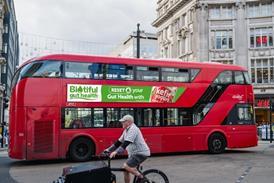Add your comments on today's top story
The adult National Minimum Wage will rise from £5.52 per hour to £5.73 from October 1, 2008, an increase of 3.8%.
At the same time, the rate for 18-21 year olds will increase from £4.60 to £4.77, while the 16-17 year old rate will rise from £3.40 to £3.53.
Trade associations were dismayed at yet another increase above the rate of inflation, particularly at a time when public sector pay rises were being held to less than 2.5%.
ACS Chief executive James Lowman said: “To expect businesses to deal with these above-inflation increases year on year is unacceptable. We support the principle of a minimum level below which wages should not fall, but the continual increases of this level are not sustainable or fair to businesses.
“This is particularly true in a year when the Government has received so much criticism from many different professions for their own low public sector wage increases. Teachers pay will increase by 2.45%, and police and nurses’ pay will increase below the 2.2% inflation rate.
“If the majority of workers in the country are receiving inflationary rises of around the 2% mark then why should small businesses such as convenience stores that already have to deal with the burden of increasing regulation have to foot the bill? Why are we expected to afford pay increases greater than those the Government is prepared to pay itself?"
The British Retail Consortium (BRC) had called for this year’s rise to be no more than the rate of inflation. It said that although the latest increase indicates the Low Pay Commission (LPC) is now looking at genuine economic evidence, its research showed retailers needed a real terms freeze.
BRC director general Stephen Robertson said: “It seems that the Low Pay Commission have listened to our evidence about the slowdown in sales, increasing staff costs and an erosion of bonuses and overtime. Shop prices have been held well below inflation, despite the increase in costs faced by retailers. So why wasn’t the latest minimum wage increase capped at the same level? There should also be no repeats of the previous inflation busting increases, as businesses are still coming to terms with the cumulative effects of these.
“Retailers had to cope with a £2.7 billion hike in wage bills caused by the 2005 and 2006 above-inflation minimum wage increases. We are facing very difficult trading conditions, while energy prices, rents, rates, and service charges are all on the increase.
“We need an end to the annual uncertainty on minimum wage rates. There should be a real-terms freeze while the LPC reviews future direction. We will continue to contribute constructive and practical ideas to ensure the minimum wage is sustainable for the future.”
The rate of inflation as measured by the Government’s Consumer Price Index is 2.2%. Business Secretary John Hutton said: “When the National Minimum Wage was launched the main rate was £3.60. Since then it has increased at substantially more than the rate of inflation.”
This latest rise means that since the minimum wage was introduced in 1999 it has risen by 59%.
Your comments
What's your reaction to the latest above-inflation NMW rise? Send us your thoughts. Your contribution may be edited for publication. Your email address will not be published.
Retailers'responses:























No comments yet